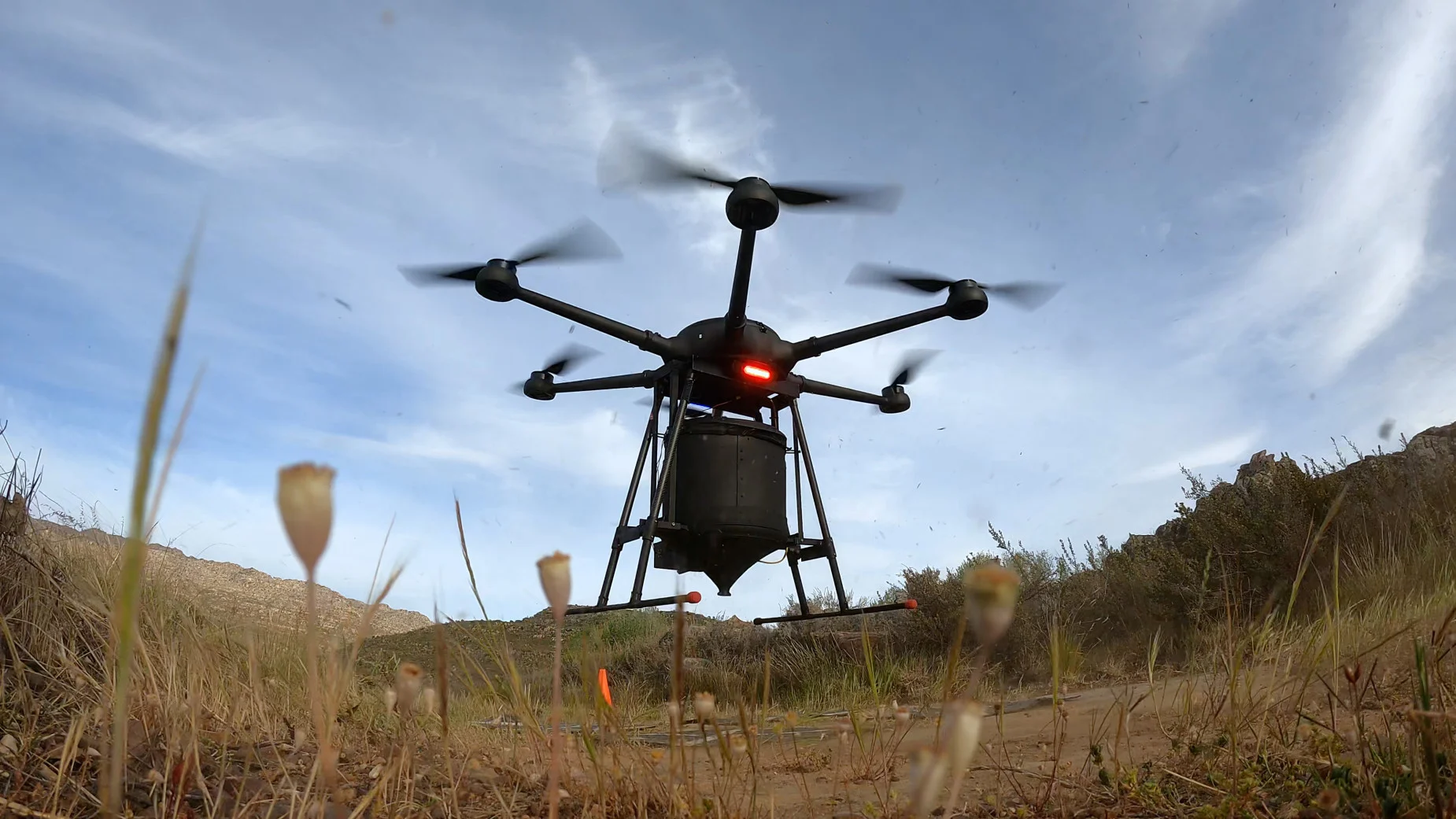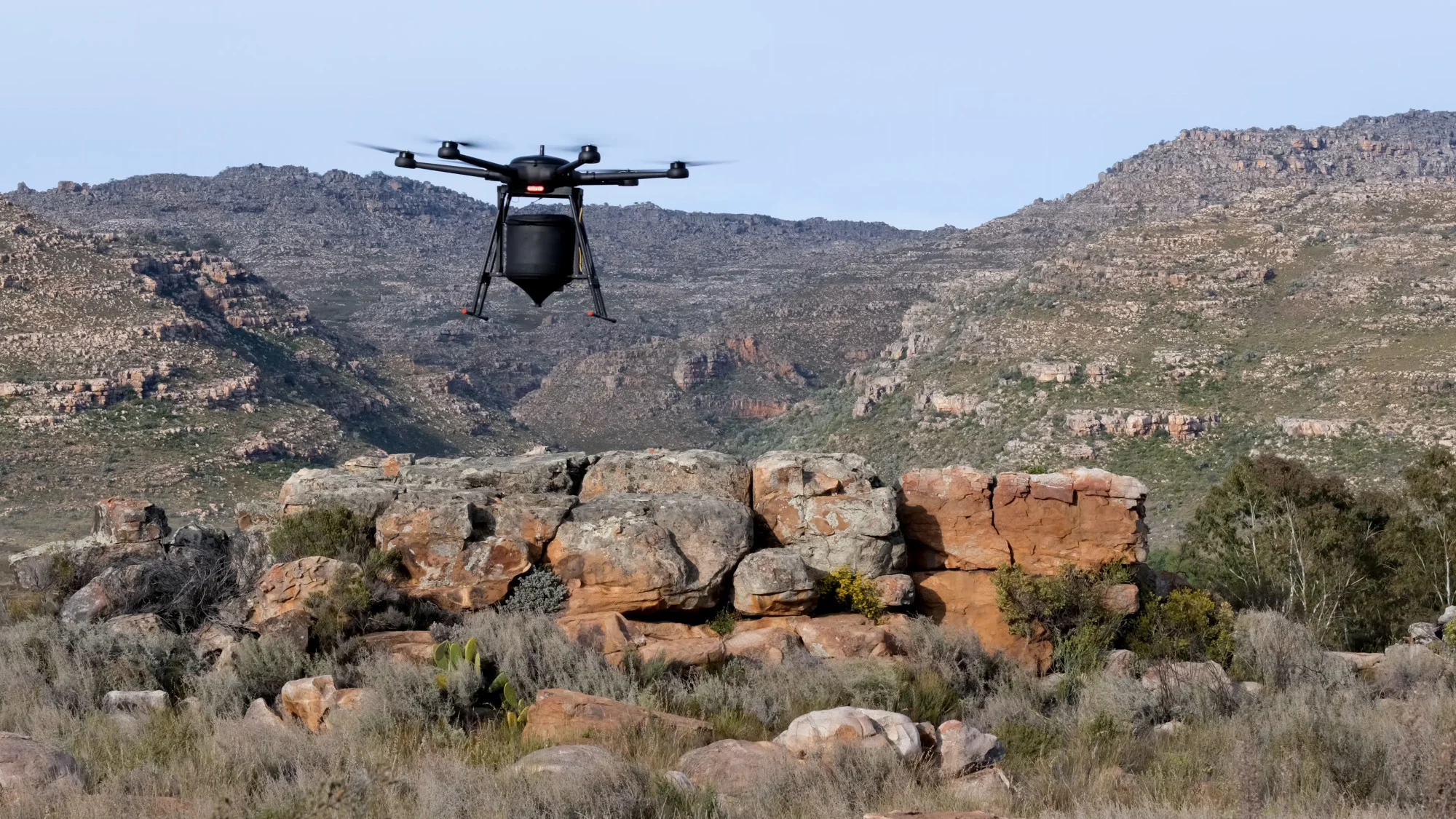
Seed-dropping drone company aims to plant 100 million trees by 2024
Drones equipped with seeds and artificial intelligence could change how we plant millions of trees in the future.
Planting more trees is one of the most obvious steps we need to take to remove carbon from the atmosphere due to their relatively cheap cost and extensive environmental and cultural benefits.
One hurdle is the amount of time and physical labour required to plant enough trees that will make a substantial difference, but an Australian-based biotech company has one solution.
AirSeed Technologies has designed drones that drop seeds as they are flying. Their patented Seed Pod biotechnology encases the seeds so they are protected during their early stages of growth and this pod also contains nutrients that are beneficial to the soil.
“The Seed Pod is basically this nutrient-rich, very specific energy pack of goodness. So it helps protect them from predators and stores the seeds until the environment is right for germination,” Andrew Walker, AirSeed CEO and co-founder, explained to The Weather Network.

An AirSeed drone flying over rugged terrain. (AirSeed)
The company says that their planting method is 25 times faster and 80 per cent more cost-effective than traditional methods. The drones can also plant seeds in environments that are too dangerous for humans to venture into, such as steep, rocky hillsides.
One AirSeed drone can plant 40,000 Seed Pods per day and the company aims to plant over 100 million trees annually by 2024. The company is currently operating in Australia and South Africa and has also previously planted trees in a number of Central West African countries.

A growing plant that was once a seed in a Seed Pod. (AirSeed)
“We're undertaking lots of different projects at the moment in different diverse landscapes. So we look at arid areas, we look at coastal areas, [we] look at altitude areas, but different soil types and different species,” Walker said.
“And then in 2023, you'll see as you start scaling up internationally, outside of Australia. So it's some really interesting times coming up. We're super excited. We're getting a lot of attention, a lot of speed. And yeah, it's good knowing that we're able to make a difference.”
Thumbnail credit: AirSeed







